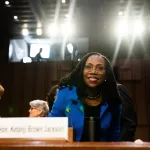The Republican-controlled U.S. Senate has begun the process of confirming President-elect Donald Trump’s Cabinet nominees.
Article II of the U.S. Constitution enables the president to appoint officials to the Cabinet and other positions with the “advice and consent” of the Senate. Many of the committees, all of which have a majority of Republicans, are holding hearings on the nominees related to their area of expertise: the Senate Judiciary Committee, for example, holds hearings for the nominees for attorney general and other top posts at the Department of Justice.
Republicans will control the Senate 53 to 47 seats once Ohio Gov. Mike DeWine appoints a senator to fill Vice President-elect JD Vance’s seat.
Some nominees like Sen. Marco Rubio of Florida, Trump’s nominee for secretary of state, are expected to easily sail through the Senate, while others are likely to garner more opposition and scrutiny. Here’s how the process will work:
When do hearings start?
Sen. Roger Wicker, who leads the Senate Armed Services Committee, held Pete Hegseth’s confirmation hearing for secretary of defense Monday, even before Trump’s inauguration. A number of other hearings are scheduled for this week.
-
Inside Hegseth’s Hearing:
-
Inside Hegseth’s Hearing: Hegseth grilled on misconduct allegations and women in combat in contentious confirmation hearing
Are hearings required for every nominee?
Not necessarily. There are over 1,300 political appointee positions that require Senate confirmation, and some nominees, like military promotions, often go straight to the Senate floor. But nominees for the Cabinet and other high-profile political appointments almost always have confirmation hearings.
What happens at a confirmation hearing?
Before a hearing, senators on relevant committees will request biographical information and a financial disclosure from the nominee. At the hearing, senators will ask questions about a nominee’s background, their qualifications and their views. Nominees for positions that require a security clearance also traditionally undergo an FBI background check.
Tulsi Gabbard, Trump’s pick for director of national intelligence, and Kash Patel, his FBI pick, are expected to draw scrutiny for their records and stances on national security issues. Democrats questioned Hegseth about a past allegation of sexual assault against him, which he denies, as well as his previous comments opposing women in combat roles. Senators on both sides of the aisle are also likely to question Robert F. Kennedy Jr., Trump’s nominee for Health and Human Services secretary, on his views on abortion, vaccines and food policy.
-
Read Next:
How does a nominee get confirmed after a hearing?
After a committee holds a hearing, its members can report the nomination favorably or unfavorably to the full Senate for a final vote. In 2013, then-Senate Majority Leader Harry Reid led his fellow Senate Democrats in changing the chamber’s rules to require only a simple majority to invoke cloture, or end debate, on presidential nominations other than Supreme Court nominees. A simple majority is also needed for final confirmation. In 2017, then-Majority Leader Mitch McConnell and Senate Republicans also lowered the threshold for Supreme Court nominees.
Historically, it’s been very rare for the Senate to reject a president’s Cabinet nominee. The last time the Senate voted down a Cabinet nominee was in 1989, when senators rejected Sen. John Tower, then-President George H.W. Bush’s nominee for defense secretary, due to concerns about his drinking. Some Cabinet nominees like former Rep. Matt Gaetz, Trump’s first pick for attorney general, also bow out of the process before they go up for confirmation.








